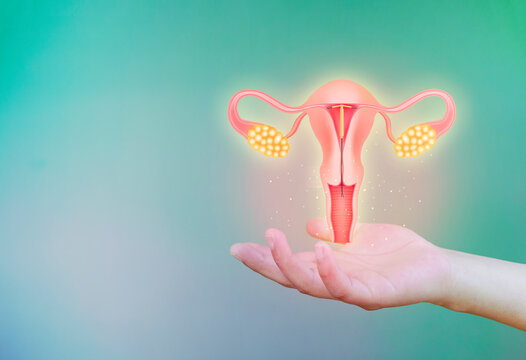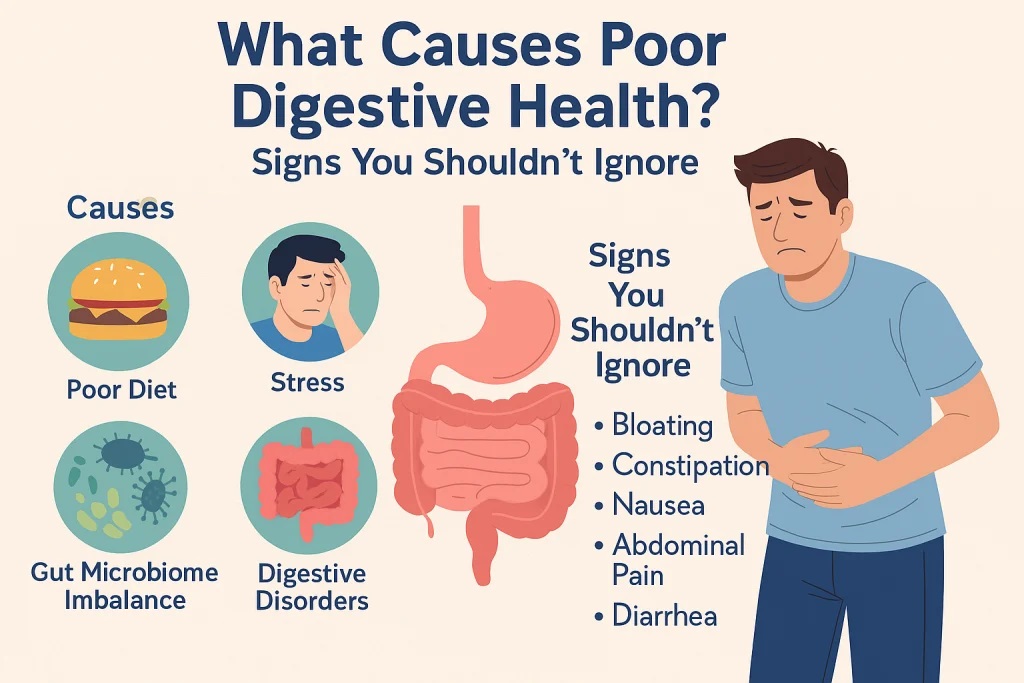Healthy weight management is far more than a matter of appearance — it is essential to the proper functioning of every system in the body, especially the hormonal and reproductive systems. At Local MD, we recognize that weight management plays a pivotal role in hormonal balance, fertility, and long-term reproductive health for both men and women.
When weight fluctuates dramatically — whether due to obesity or being underweight — it can disrupt hormone production, ovulation, sperm quality, and even sexual function. This article explores how healthy weight management supports hormonal harmony, enhances reproductive outcomes, and prevents related health issues.
Understanding the Link Between Weight and Hormones
The body’s hormonal system, or endocrine system, regulates metabolism, growth, mood, and reproduction. Hormones act as chemical messengers, ensuring organs and tissues function harmoniously. However, excess or insufficient body fat can interfere with hormone secretion, leading to imbalance and disease.
Fat tissue (adipose tissue) is not just a passive energy store — it is an active endocrine organ that secretes hormones such as:
-
Leptin – regulates appetite and metabolism.
-
Insulin – controls blood sugar levels.
-
Estrogen – produced in both men and women, primarily from fat cells.
-
Adiponectin – influences insulin sensitivity and inflammation.
An imbalance in these hormones can trigger menstrual irregularities, infertility, metabolic disorders, and sexual health problems. Maintaining a healthy weight helps regulate these key hormones, ensuring the body’s reproductive system functions optimally.
How Excess Weight Affects Hormonal Health
Carrying extra body fat, especially around the abdomen, has profound effects on hormone production and balance. Obesity creates a state of chronic inflammation and insulin resistance, which disrupts communication between glands in the endocrine system.
Here are some of the most significant hormonal impacts of excess weight:
Elevated Estrogen Levels
Fat tissue produces estrogen, meaning the more body fat you have, the more estrogen circulates in your body. In women, high estrogen levels can cause irregular menstrual cycles, endometrial thickening, and polycystic ovary syndrome (PCOS). In men, excess estrogen can reduce testosterone levels, leading to decreased libido and fertility.
Insulin Resistance and Blood Sugar Imbalance
When the body becomes less sensitive to insulin, it must produce more to regulate blood sugar. Chronic insulin resistance not only leads to type 2 diabetes but also disrupts ovarian function and contributes to PCOS — one of the most common causes of infertility.
High insulin levels stimulate the ovaries to produce more androgens (male hormones), such as testosterone, which can cause acne, irregular ovulation, and excess body hair growth in women.
Reduced Sex Hormone-Binding Globulin (SHBG)
Obesity lowers levels of sex hormone-binding globulin, a protein that regulates testosterone and estrogen levels. Low SHBG can lead to hormonal imbalance, making both men and women more vulnerable to reproductive disorders.
Disrupted Leptin and Ghrelin Levels
Leptin and ghrelin are the hormones that regulate hunger and fullness. Overweight individuals often experience leptin resistance, meaning the brain no longer responds to signals that indicate fullness. This imbalance perpetuates overeating, weight gain, and further hormonal dysfunction.
How Being Underweight Impacts Hormonal and Reproductive Health
While obesity is commonly discussed, being underweight can also have serious hormonal and reproductive consequences. Low body fat leads to insufficient estrogen production, disrupting the menstrual cycle and causing amenorrhea (absence of menstruation).
Hypothalamic Amenorrhea
When body fat is too low, the brain’s hypothalamus reduces signals to the pituitary gland, leading to a decrease in luteinizing hormone (LH) and follicle-stimulating hormone (FSH). This suppresses ovulation and halts menstruation — a condition known as hypothalamic amenorrhea.
Reduced Bone Density
Estrogen is vital for bone health. Low estrogen levels in underweight women increase the risk of osteoporosis and fractures, highlighting how reproductive and skeletal health are interconnected.
Fertility Challenges
Underweight women often experience difficulty conceiving due to lack of ovulation, while men may have lower sperm count and motility. Adequate body fat ensures the body has enough energy reserves to sustain pregnancy and support hormone regulation.
Weight Management and Reproductive Health in Women
Women’s reproductive health is deeply tied to their weight. Hormonal fluctuations caused by weight loss or gain can affect everything from menstruation to pregnancy outcomes.
Polycystic Ovary Syndrome (PCOS)
PCOS affects millions of women worldwide and is strongly linked to insulin resistance and obesity. Symptoms include irregular periods, ovarian cysts, acne, and difficulty conceiving.
Effective weight management through diet, exercise, and insulin control can significantly reduce symptoms. Even a 5-10% weight loss can restore ovulation and increase the likelihood of pregnancy.
Menstrual Irregularities
Excess body fat alters estrogen and progesterone balance, leading to irregular, heavy, or missed periods. Conversely, insufficient body fat may halt menstruation altogether. Achieving a balanced weight helps normalize hormone levels and menstrual cycles.
Pregnancy Complications
Obesity increases the risk of gestational diabetes, preeclampsia, and miscarriage. On the other hand, being underweight increases the risk of premature birth and low birth weight. Maintaining a healthy weight before conception improves maternal and fetal outcomes.
Menopause and Hormonal Transitions
Postmenopausal women often experience weight gain due to declining estrogen levels and slower metabolism. Excess fat tissue further increases estrogen production, heightening the risk of breast cancer and cardiovascular disease.
Healthy lifestyle habits — including balanced nutrition and regular exercise — help mitigate these risks and support smoother hormonal transitions during menopause.
Weight Management and Reproductive Health in Men
Men’s reproductive health is equally influenced by body weight. Both obesity and being underweight can interfere with testosterone levels and sperm health.
Testosterone Suppression
Obesity lowers testosterone — the hormone responsible for libido, sperm production, and muscle mass. High body fat converts testosterone into estrogen through a process called aromatization, leading to low libido, erectile dysfunction, and infertility.
Sperm Quality and Count
Excessive body fat raises testicular temperature and oxidative stress, impairing sperm motility, shape, and DNA integrity. On the other hand, being underweight can also lower testosterone and sperm count due to nutritional deficiencies and low energy reserves.
Maintaining a balanced weight helps optimize sperm quality and fertility potential.
Erectile Dysfunction and Cardiovascular Health
Obesity is strongly linked to erectile dysfunction (ED) due to poor blood flow and hormonal imbalance. Weight loss through healthy lifestyle changes can improve circulation, boost testosterone, and restore sexual performance.
Nutritional Strategies for Hormonal Balance and Weight Management
Proper nutrition is at the heart of both hormonal balance and reproductive health. A diet rich in whole foods, lean proteins, healthy fats, and fiber supports stable blood sugar and hormone regulation.
Focus on Whole, Unprocessed Foods
Eat plenty of:
-
Leafy greens and cruciferous vegetables (broccoli, kale, spinach) for detoxification and estrogen balance.
-
Lean proteins (fish, eggs, poultry, legumes) to support hormone production and muscle health.
-
Healthy fats (avocados, olive oil, nuts, seeds) to aid in hormone synthesis.
Maintain Stable Blood Sugar
Avoid refined sugars and processed carbohydrates, which spike insulin and disrupt hormone balance. Instead, choose complex carbohydrates like whole grains, sweet potatoes, and quinoa for sustained energy and stable glucose levels.
Include Omega-3 Fatty Acids
Omega-3s found in fish and flaxseeds help reduce inflammation and improve insulin sensitivity, supporting both hormonal and reproductive health.
Hydration and Fiber Intake
Adequate water and fiber aid in detoxifying excess estrogen and maintaining digestive health — both essential for hormone balance.
Lifestyle Habits for Optimal Weight and Hormone Regulation
Beyond diet, daily habits play a crucial role in weight control and hormone stability.
Exercise Regularly
Engage in at least 150 minutes of moderate exercise weekly. Activities like walking, yoga, and strength training improve insulin sensitivity, boost metabolism, and balance stress hormones.
Manage Stress
Chronic stress elevates cortisol, which can increase belly fat and suppress reproductive hormones. Practice meditation, deep breathing, or mindfulness to reduce stress-related hormonal disruption.
Prioritize Quality Sleep
Poor sleep affects leptin, ghrelin, and insulin, leading to increased appetite and hormonal imbalance. Aim for 7–9 hours of restorative sleep each night.
Limit Alcohol and Avoid Smoking
Both alcohol and smoking interfere with hormone metabolism and reduce fertility. Minimizing these habits supports reproductive health and longevity.
Medical Support for Weight and Hormonal Health at Local MD
At Local MD, we understand that sustainable weight management requires more than just diet and exercise. Our medical experts offer comprehensive evaluations and personalized treatment plans to help patients restore hormonal and reproductive balance.
Our services include:
-
Hormonal testing and analysis to identify imbalances.
-
Nutritional counseling tailored to individual needs.
-
Medically supervised weight management programs.
-
Fertility support for couples struggling with conception.
-
Lifestyle coaching for long-term wellness.
We combine medical expertise with compassionate care, ensuring each patient achieves holistic well-being.
Conclusion
The connection between weight, hormones, and reproductive health is undeniable. Whether through balanced nutrition, consistent exercise, or medical guidance, effective weight management can prevent hormonal disorders, enhance fertility, and promote lifelong reproductive wellness.
At Local MD, we empower individuals to take control of their health by addressing root causes rather than symptoms. Maintaining a healthy weight is not about aesthetics — it’s about achieving hormonal harmony and reproductive vitality.
Your journey to balanced health begins with one step: managing your weight with intention, knowledge, and professional support.






